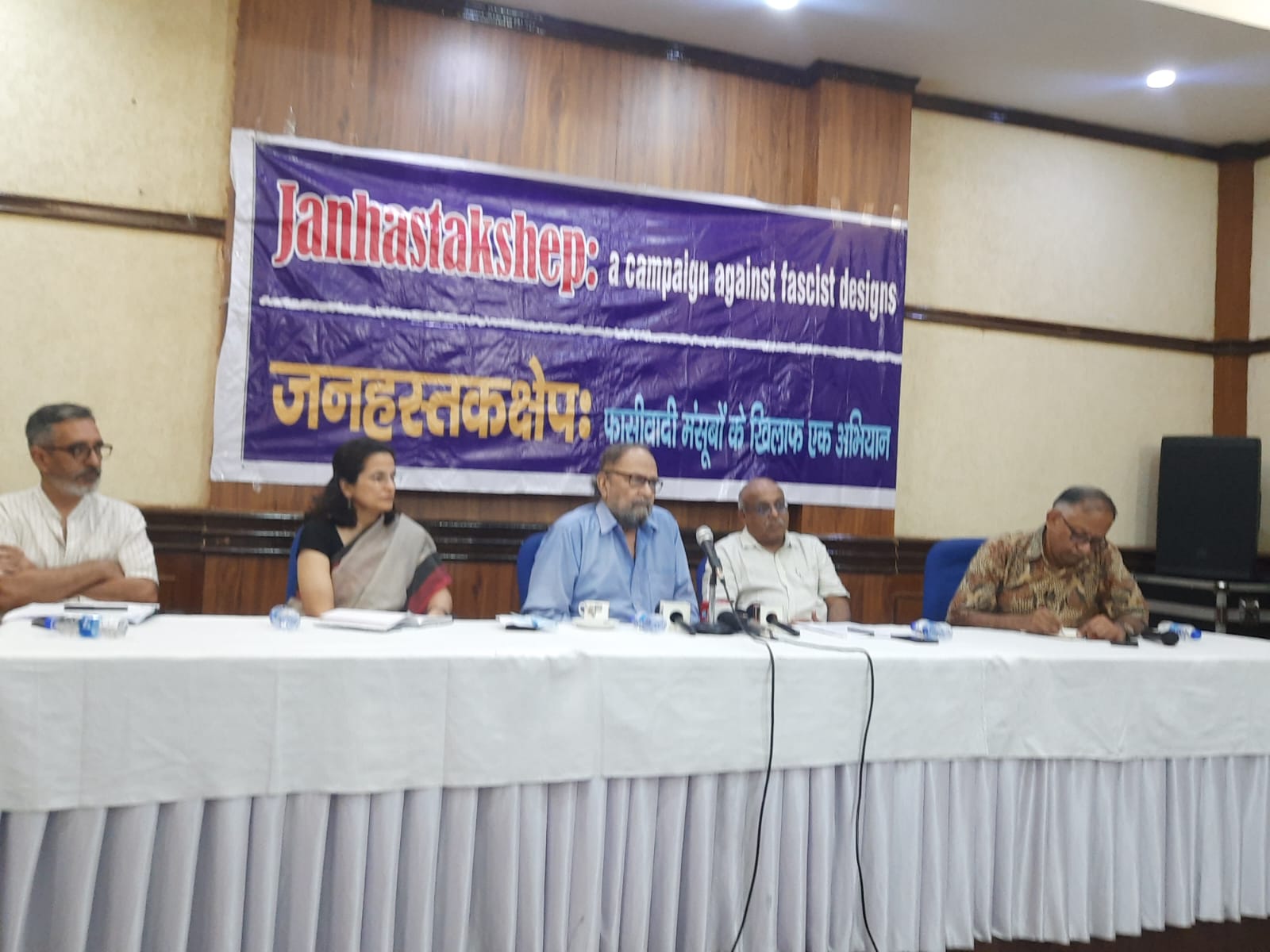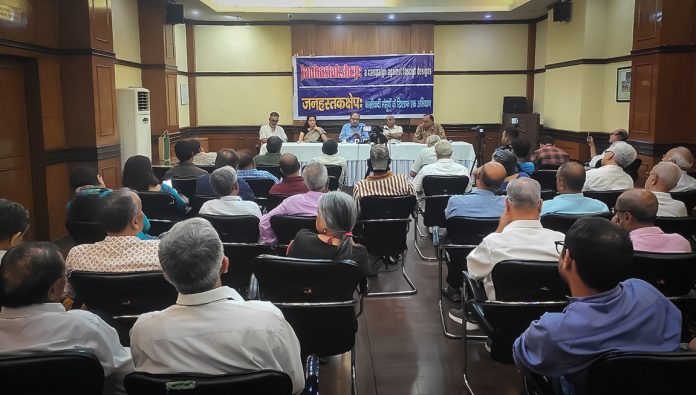 – Abdul Bari Masoud
– Abdul Bari MasoudNew Delhi: Intellectuals, journalists, academics, and rights activists came together under Janhastakshep to raise alarm over what they termed a “planned assault” on press freedom, civil rights, and expression under the BJP-led Modi government.
The meeting was held at the Press Club of India. The event, titled “Throttling Press Freedom and the Attack on Freedom of Expression to Enslave Society,” focused on how laws and actions are being used to silence critics, criminalise journalism, and spread fear.
Speakers included senior journalist Saeed Naqvi, JNU professor Rakesh Batabyal, RTI activist Anjali Bhardwaj, and investigative journalist Nitin Sethi. The event was introduced by Anil Dubey and conducted by Janhastakshep convener Dr. Vikas Bajpai.
Speakers pointed to recent attacks on media. These include the banning and later unbanning of The Wire and YouTube’s 4PM, the arrest of Ashoka University professor Ali Khan Mehmoodabad over a social media post, and the assault on four journalists in Bhind, Madhya Pradesh, for exposing police extortion.
“These aren’t random,” said Saeed Naqvi. “This is a pattern to scare and silence journalists.” He said post-Cold War, Indian media is copying Western propaganda in dangerous, communal ways.
Prof. Batabyal said journalistic ethics are eroding. “Godi Media,” he said, works as state propaganda, pushing sectarian politics and branding critics as anti-national.
The Digital Personal Data Protection Act (DPDP) passed in 2023, with rules formed in 2025, came under heavy criticism. Speakers said it pretends to protect privacy but can be used to block journalism and whistleblowing.
Anjali Bhardwaj called it part of a “Data Mukt Bharat” campaign. “Without access to information, people can’t challenge power,” she said.
She criticised delays in the national census and failure of NSSO data, allowing lies to replace real data. She cited NITI Aayog’s claim that only 5% of Indians are poor as an example of data distortion.
Changes to Section 8(1)(j) of the RTI Act now allow info denial under vague privacy claims. “Bridges fall, money disappears, and no one is held accountable. PM CARES is out of RTI too,” Bhardwaj said. She warned the DPDP Act could make reporting corruption a punishable act.
Speakers slammed misuse of tough laws like UAPA, Sedition Law, and PMLA to jail journalists, activists, and opposition figures.
The arrest of Prof. Mehmoodabad for a mild post about the Muslim situation was cited as a sign of growing intolerance.
Panelists criticised the growing dominance of “Godi Media” – media that supports the government.
Prof. Batabyal said media that spreads hate and promotes violence is protected and praised, while truth-telling journalists are punished.
During India’s military tensions with Pakistan, they said, Indian channels used jingoism and ignored ethics. “It turned India into a global joke,” one participant said.
Nitin Sethi, in his speech, recalled exposing a 2021 government order that denied nutrition aid under ICDS to children without Aadhaar, breaking a Supreme Court order.
“The government ignored our queries. After publication, they called it fake news via PIB,” he said.
Sethi praised young journalists for their courage. “There are still brave 30- to 35-year-olds doing real reporting. The government fears us. That fear is our strength,” he said. “Hard times demand more courage.”
A resolution passed at the meeting called the government’s actions “neo-fascist.” It urged civil society to fight back.
The resolution read:
“Freedom of thought and speech is not a privilege. It is essential for democracy. Journalism, academics, art, and literature must be free.”
It demanded repeal of the DPDP Act and other harsh laws. It called for an end to police threats and legal action against journalists. It expressed support for all who face harassment for exercising their rights.
“Freedom cannot be killed by fear,” it said. “People must have the right to question, speak, and resist.”
Organisers said building strong democratic culture through institutions, awareness, and courage is the only way to protect India’s democracy.




